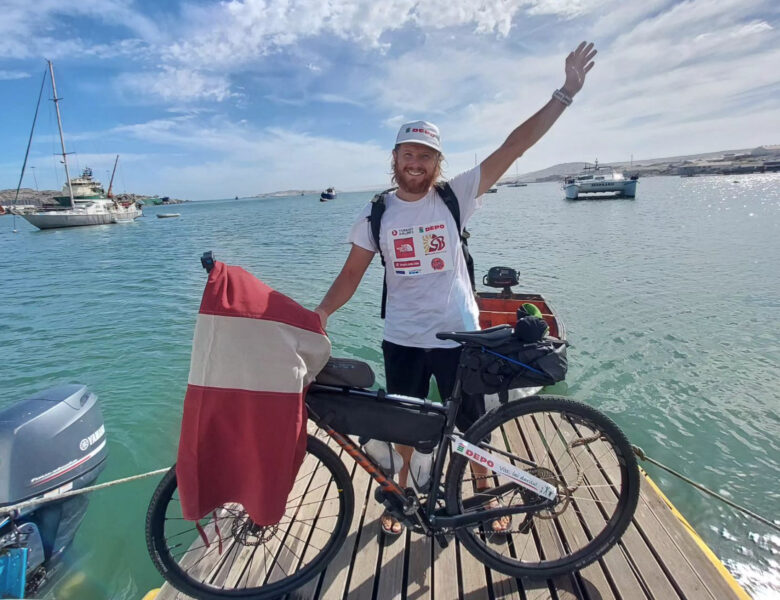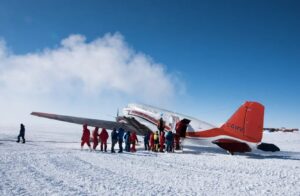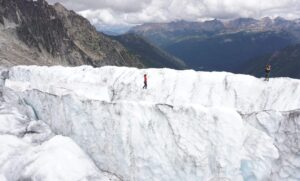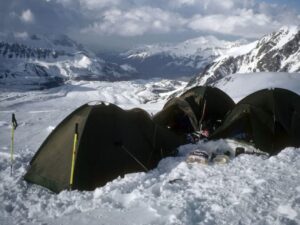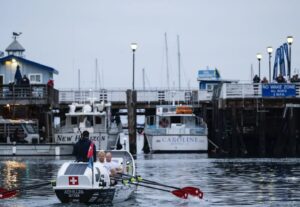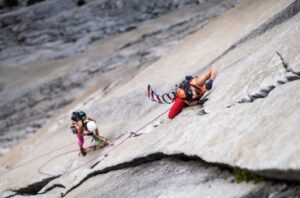Over 2,898 days, Karlis Bardelis has rowed and cycled completely around the world. On April 4, he crossed his finish line in Namibia, where he began almost eight years ago.
During his circumnavigation, the 39-year-old Latvian adventurer has rowed 46,326km and cycled 11,972km. Bardelis says the key to doing such an overwhelmingly long journey was only looking one step ahead.
Bardelis began his journey in 2016 when he and a partner rowed from Namibia to Brazil. Then in 2018, he restarted in Brazil and cycled on a tandem bicycle to Lima, Peru with his then-girlfriend. They pedaled the 5,400km in 102 days.
Immediately after this, he rowed 26,000km alone across the Pacific in 715 days. When he landed in Malaysia, he became the first person to row from South America to Asia. Storms and hurricane seasons forced him to stop at various islands along the way.
COVID delays
COVID then forced him to pause his circumnavigation. He flew back to Latvia and waited for a year and a half before he could return to Malaysia and restart. When he arrived, his boat had more water damage than he expected.
He needed so much time to make repairs that he missed his weather window. Headwinds made the Malacca Straight almost impossible to row. So instead, he moved the boat to Kuala Perlis, elsewhere in Malaysia, and cycled to his new starting point.
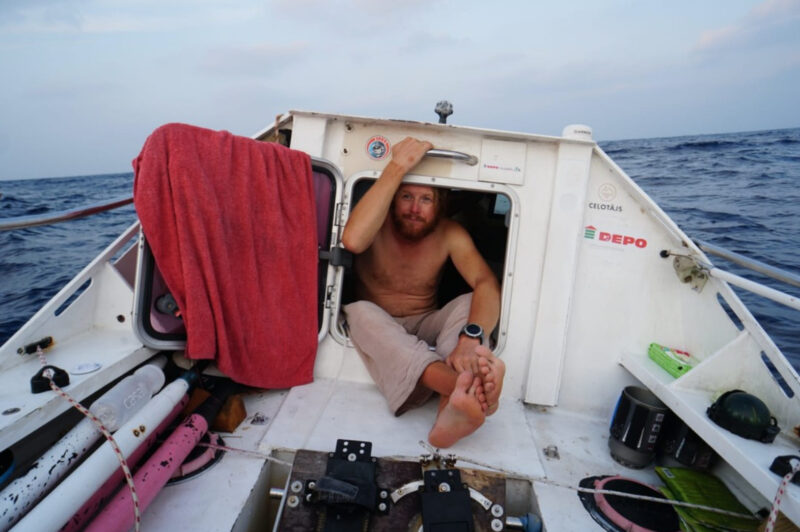
Crossing the Indian Ocean. Photo: Karlis Bardelis
In January 2022, he began rowing to Sri Lanka. Here, he picked up fellow circumnavigator Dimitri Kieffer. They rowed together for nine days to the Maldives, where Kieffer continued his own journey and Bardelis went on alone.
His plan was to make it to Tanzania, but huge winds and waves kept throwing him off course. He rowed for up to 20 hours at a time to keep from drifting backward.
The last stage of his journey has been fraught. During the first few weeks, the winds pushed him the wrong way. Next, he had to cut one of his anchors loose when he was unable to retrieve it from the deep corals it had hooked onto.
Rows Asia-Africa
On June 21, 2022, he became the first person to row from Asia to Africa. The only problem was that he landed in Somalia, not Tanzania. Speaking to ExplorersWeb, he explained, “I knew about the East African coastal current which runs south to north. It starts around 80 to 90km off the coast of Africa. My plan was to get to Tanzania or to approach it as closely as possible. I still had Kenya as a safe buffer before Somalia. But because of the wind, I was already too far north when I hit the current.”
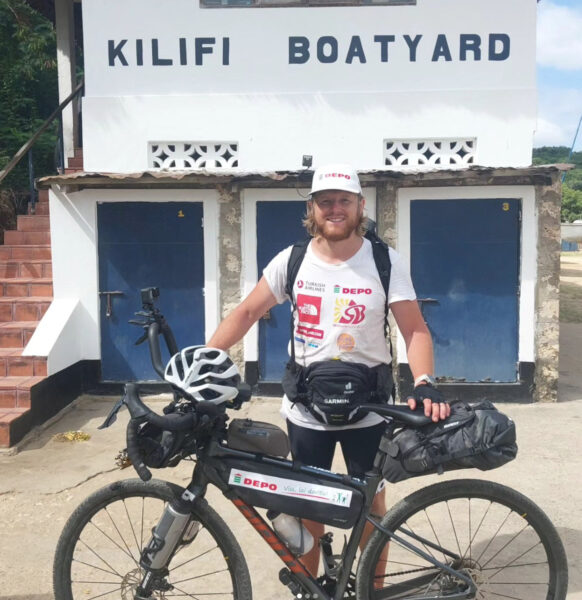
Starting the final stage. Photo: Karlis Bardelis
The next stage was a logistical nightmare. He had had to abandon his boat in Somalia. To restart, he needed it back: He still had to finish the row to Tanzania. Originally, the army said it would look after his boat, but local fishermen seized it instead.
A year and a half later, and after many changed plans, he managed to get the boat to Kenya. Then the boat was towed back into Somalian waters, 90km off of the Somalia-Kenya border, and Bardelis started the final stage of his row with his friend Arturs Skroderis. They covered the 385km route to Kilifi, Kenya in just three-and-a-half days. The duo landed on Jan. 30.
Since then, Bardelis has cycled the final 5,000km stage of his 7-year and 11-month journey. He traveled from Kenya to Tanzania, Zambia, Botswana, and Namibia.
As he finished at last, Bardelis exclaimed, “The feelings are surreal! The person who started this journey nearly eight years ago was a completely different person.”
